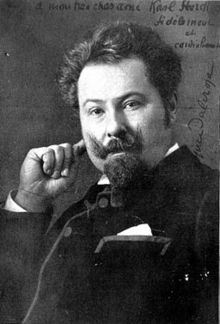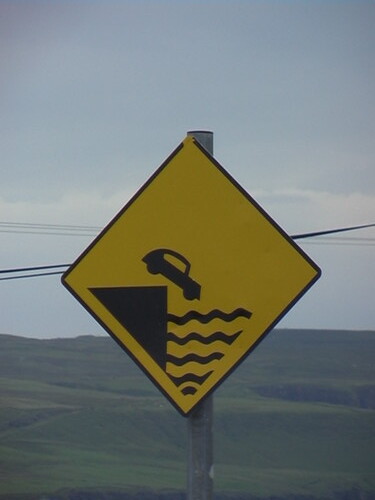Émile Jacques-Dalcroze had a few things right and it wasn’t just about music education. It was about where knowledge begins. Not in some deep ethereal way. In a tangible way. You have to know when to hold ’em; know when to fold ’em. Know when to walk away and know when to run. The same rules that we have learned from gamblers and from Nirvana apply to education. Keep it close to your heart–at the beginning, at least.

Eat your heart out, Mr. French.
Best known for the concept of eurhythmics and for teaching music through movement, I find the heart of the Dalcroze method is the most profound and most immediately applicable to all education.
Dalcroze taught us that concepts begin close to the body. The farther a concept gets from the heart, or gut in some translation, the more abstract it becomes. That is why, in a typical Dalcroze setting, you will see young students stomping their feet, clapping their hands, patting their knees, and slapping their bellies. You are more likely to see students moving to demonstrate a musical concept than, say, writing about it. Or, perish the thought, typing about it on a computer.
How does this translate to education in other domains? Consider the  process that we require of students. Consider whether knowledge begins close to the heart before it is in the hands; in the mouth before it is on the pen; on the paper before it is in the computer. With each added distance, there is an added level of abstraction. When tools are involved and the information moves beyond the body–using a pencil, a drumstick, and beyond to a computer keyboard that places words onto a screen–the learned concepts take significant leaps into abstraction. Are your students prepared to make that leap and are you prepared to intervene if they are not? If you prefer, you may think along the lines of another Swiss theorist, Jean Piaget. According to Piaget, the final stage of development is most notably marked by the ability to think abstractly. While Piaget’s stages are developmental across years, it may be a worthwhile consideration to parallel these stages through the teaching and learning within your content.
process that we require of students. Consider whether knowledge begins close to the heart before it is in the hands; in the mouth before it is on the pen; on the paper before it is in the computer. With each added distance, there is an added level of abstraction. When tools are involved and the information moves beyond the body–using a pencil, a drumstick, and beyond to a computer keyboard that places words onto a screen–the learned concepts take significant leaps into abstraction. Are your students prepared to make that leap and are you prepared to intervene if they are not? If you prefer, you may think along the lines of another Swiss theorist, Jean Piaget. According to Piaget, the final stage of development is most notably marked by the ability to think abstractly. While Piaget’s stages are developmental across years, it may be a worthwhile consideration to parallel these stages through the teaching and learning within your content.
[…] This post was mentioned on Twitter by Dr. David D. Timony, Dr. David D. Timony. Dr. David D. Timony said: New blog post "Mind the Gap, Jacques" Using Dalcroze to help fix holes in our teaching/learning process http://ow.ly/2RS5y comments welcome […]
I am still thinking about how
talent is really enthusiasm, from
an earlier post you wrote, so your
blog is useful…hope you keep
writing.